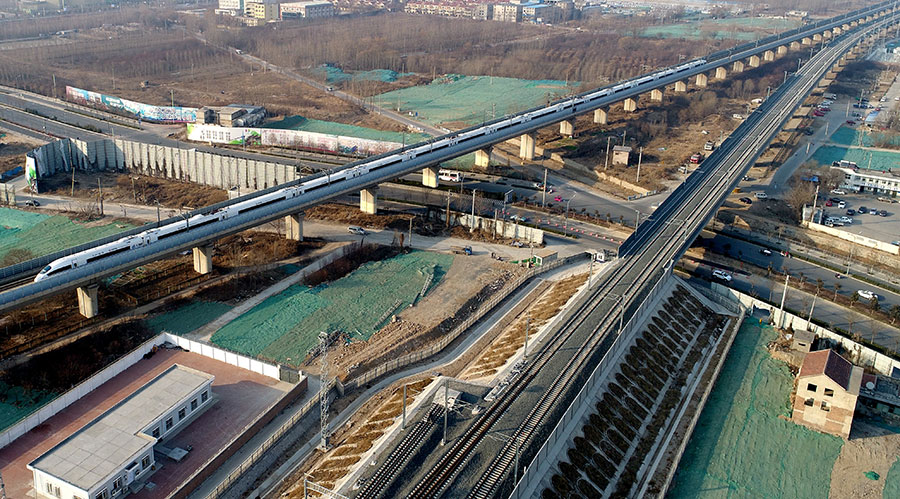Rails expand high-speed network
By Luo Wangshu | China Daily | Updated: 2017-12-28 09:08

Two new railways will open on Thursday, expanding China's high-speed railway network to 24,000 kilometers.
According to China Railway Corp, the national rail operator, a bullet train linking Shijiazhuang, capital of Hebei province, and Jinan, capital of Shandong province, will be put into operation on Thursday.
The new railway stretches 298 km and has 10 stations. Trains will initially operate at a speed of 250 km/h, reducing the travel time between the cities to two hours and nine minutes, down from three hours and 47 minutes.
It also links to the Beijing-Guangzhou and Beijing-Shanghai high-speed railways, according to CRC, which said the line will play a significant role in rejuvenating the countryside, boosting regional development and enhancing the economy along the railway.
Also on Thursday, a railway linking Jiujiang of Jiangxi province and Quzhou of Zhejiang province will start operations. The 334-km line has 10 stops and trains will run at an initial speed of 200 km/h.
It will link to the Beijing-Kowloon, Wuhan-Jiujiang, Hefei-Jiujiang and Tongling-Jiujiang lines to the west. To the east, it will link to the Shanghai-Kunming line and the Quzhou-Ningde line, which is under construction.
The line will form a railway gateway linking the southwestern region, Central China and coastal areas.
"The new line will boost tourism and mineral resources development, promote green development and encourage construction of Poyang Lake ecological economic region," according to CRC.
In addition to its increasingly intricate high-speed railway network, China is helping other countries with transport infrastructure.
China issued an updated national railway development plan last month that envisions 30,000 km of high-speed railways by the end of 2020, when it expects more than 80 percent of big cities will be covered by bullet trains.
By the end of 2020, rail travel between Beijing and most provincial capitals will be reduced to between two and eight hours, the plan said.
























